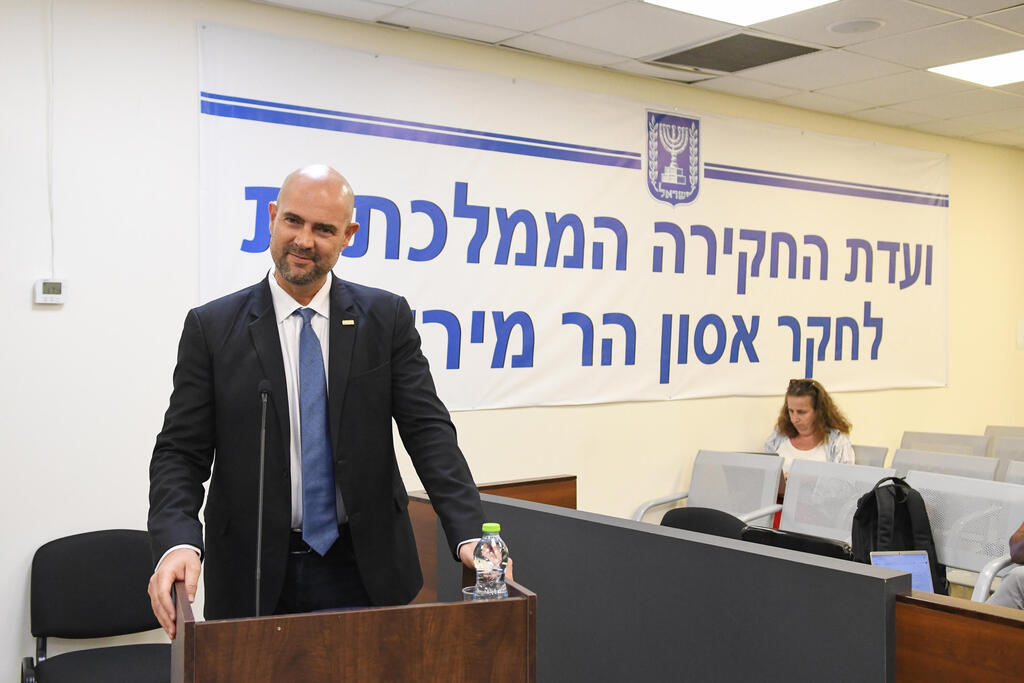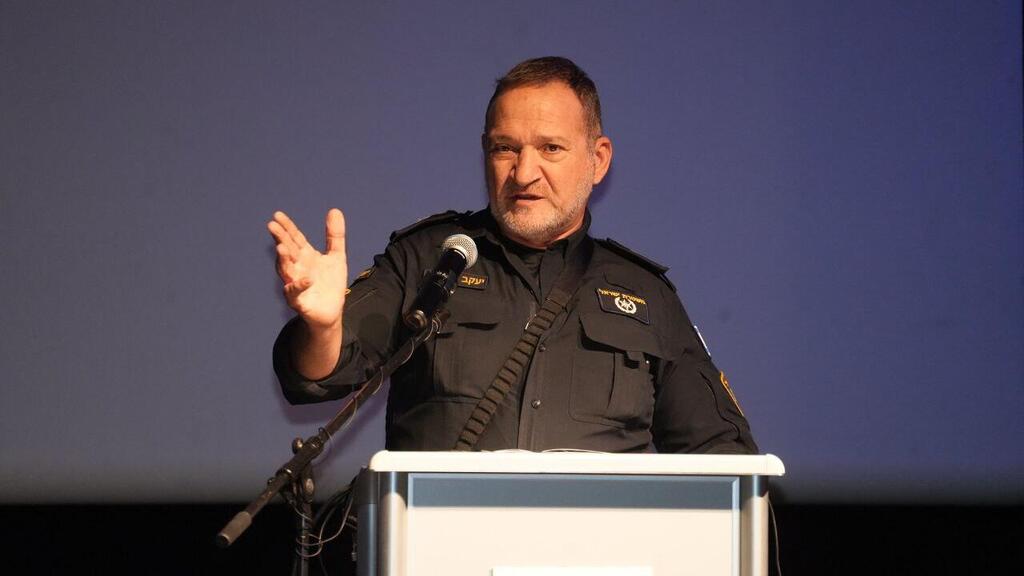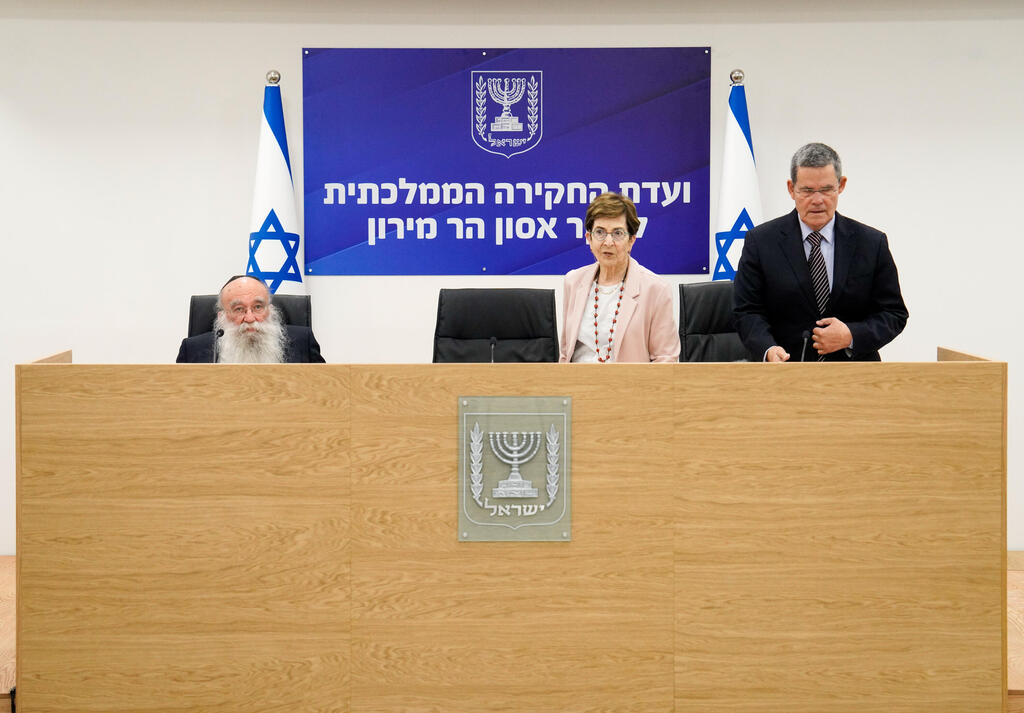Prime Minister Benjamin Netanyahu, along with other senior politicians and police officials, bears personal responsibility for the 2021 Mount Meron stampede, the state commission of inquiry into the deadliest civilian disaster in Israel's history said in its findings published on Wednesday.
5 View gallery
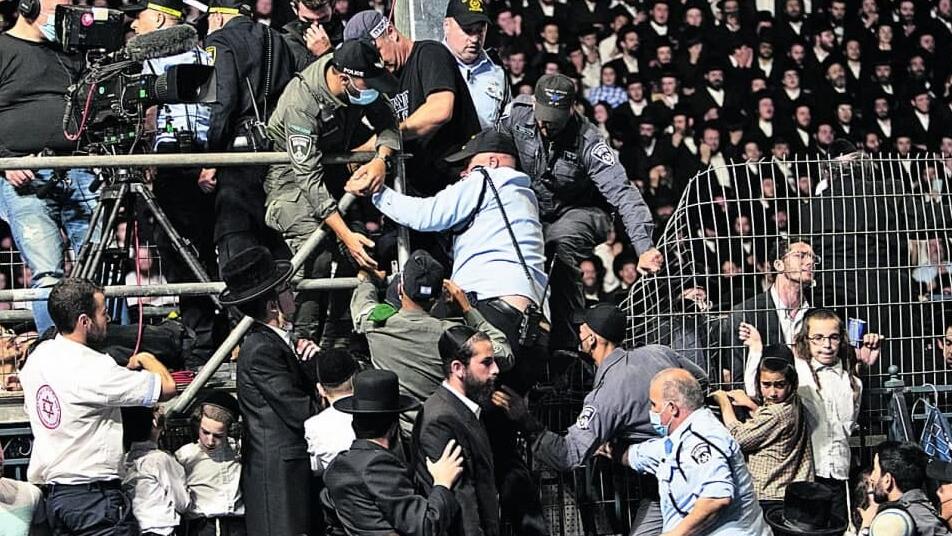

Panic as security forces try to pull members of the crowd during the deadly crush
(Photo: Gil Nechushtan)
According to the concluding remarks of the report—covering the tragic events that led to the deaths of 45 men, teenagers and children during the Lag B'Omer festival, "We found a culture of negligence within our home. This culture of negligence led to the terrible disaster at Mount Meron. The writing that was on the wall was known to many for many years. This disaster could have been prevented, and it was an obligation to prevent it."
The committee attributed personal responsibility for the disaster to senior officials. Regarding Prime Minister Netanyahu, the committee noted that "since the role of the prime minister is essentially an elected position with unique characteristics, the committee decided not to make a definitive recommendation regarding Netanyahu."
However, the committee also stated that "based on all the materials and evidence presented to us and our direct impressions from them, our conclusion is that there is a reasonable basis to determine that Netanyahu knew that the gravesite of Rabbi Shimon bar Yochai had been treated with inadequate maintenance for years and that this could pose a risk to the thousands of visitors, especially on Lag B'Omer. Even if, for the sake of caution, we assume that Netanyahu did not have actual knowledge of the matter, under the circumstances, he should have known."
5 View gallery
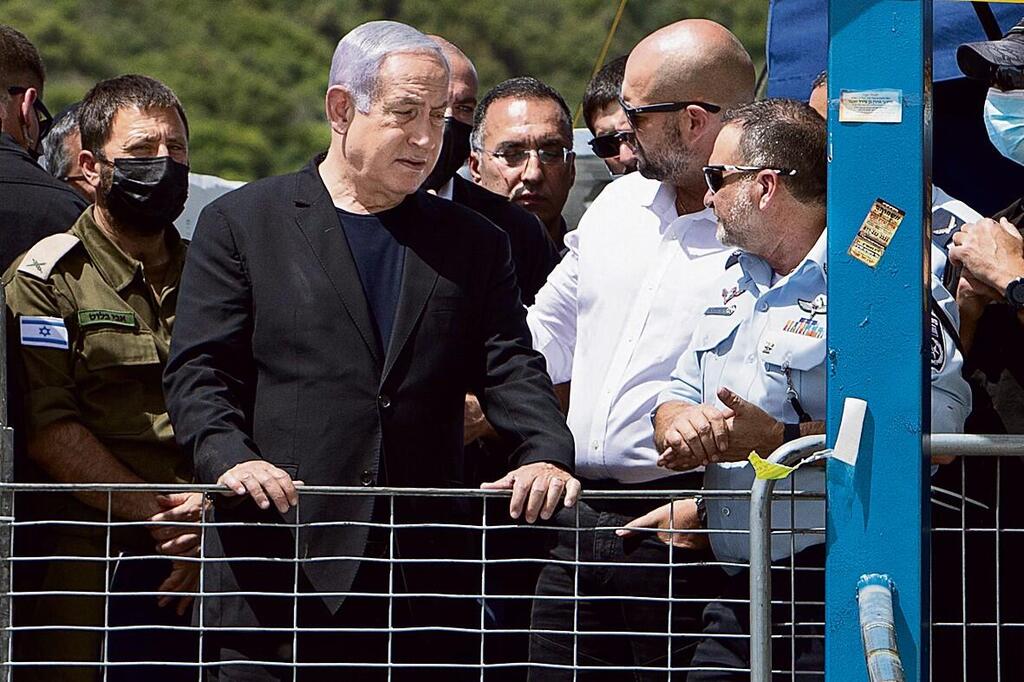

Surveying the disaster site after the fact, Benjamin Netanyahu
(Photo: Gil Nechushtan)
"The prime minister bears the responsibility to proactively address, either personally or through mechanisms at his disposal, issues that require the attention of his office and, if necessary, his intervention, especially matters concerning human lives. This obligation is certainly requested after the Carmel fire and the remarks made about it by the state comptroller's report," members of the inquiry further wrote, referring to a 2010 forest fire that killed 44 people, destroyed dozens of homes and consumed thousands of acres of forest on northern Israel's Mount Carmel.
The inquiry also assigned personal responsibility to Knesset Speaker Amir Ohana, who served as public security minister at the time of the disaster, and recommended against him holding government positions in the future.
"At the event in question, Ohana was required to clarify the fundamental perception of preparedness for the event and address it, as the overcrowding and associated risks were evident. It did not necessitate involvement in operational details. All that was required was to ask the right questions and demand an answer based on thorough groundwork," the report stated.
"Even in a normal situation, it could have been understood that the public security minister is not expected to delve into operational considerations for a specific event. In our case, after the issue of overcrowding was raised during discussions and the real concern for human lives was clarified, even after the police's planned response, Ohana could not have remained a passive observer."
Police failings
The inquiry also recommended the dismissal of Police Commissioner Kobi Shabtai from his position, although the final decision was deferred to the government due to the ongoing war.
"Commissioner Shabtai approved the operational plan formulated by the Northern District Police, despite knowing that the compound and the facilities used for bonfires could not safely accommodate the expected number of visitors during the event, while ignoring the associated risks," the report read.
"Even when the option to limit the crowd size at the site due to the coronavirus pandemic arose, it was rejected by Commissioner Shabtai, who took a firm stance, stating that an all-encompassing plan to limit the number of visitors at a given time is more dangerous than holding the event without restrictions. This stance was determined without a structured groundwork to support it, and without examining alternatives and specific methods for limiting the number of participants in the event.
"Commissioner Shabtai approved the operational plan as mentioned, even though there was no direct response to dealing with the crowd size and the expected dangerous overcrowding during the event. The plan did not include an effective mechanism for crowd management or redirection based on safety considerations.
Read more:
"The responses to the overcrowding included in the plan were reactive and not preventive, and the plan unreasonably relied on the field commanders' ability to visually identify dangerously crowded areas based solely on their operational experience, without being trained for it."
The police commissioner's response to the inquiry report acknowledged the findings, expressing respect for the commission's work and recognizing the report's depiction of significant systemic failures across state authorities in managing the Meron site. He admitted to police preparation flaws for the 2021 event and took full responsibility.
Despite his request to end his tenure earlier in the year, he remained at the government's behest due to the war situation. Shabtai plans to conclude his 40-year service following a government decision.
Chaos theory
The report concluded that there was a lack of attention to the number of attendees allowed at the event, with no justification provided for the specific limit set.
The report also highlighted that, instead of clearly assigning and explaining roles, many of those who authorized the event initially did so without any organizational logic. This led to confusion, with many responsible parties unclear about their specific duties.
Committee members described the issue as a case of "Israbluff," emphasizing that numerous documents were "written and signed with no real intention of implementing what was written in them."
"Those involved knew that the documents stated A, but in practice, B was followed, and the purpose of the paperwork was merely to create a false appearance of compliance with the rules. Blatant examples include the annual limit on the number of attendees, which was included in the safety plan but was known to be disregarded in reality. Additionally, business licenses for various events at the Yahrzeit were issued retrospectively, after the events had already taken place," the report concluded.


